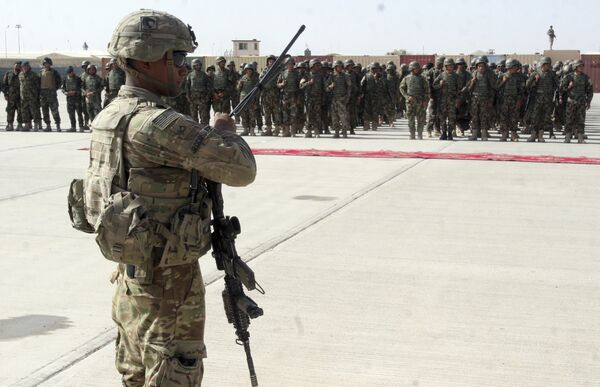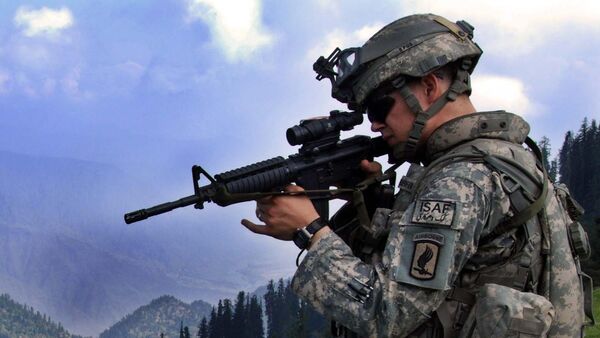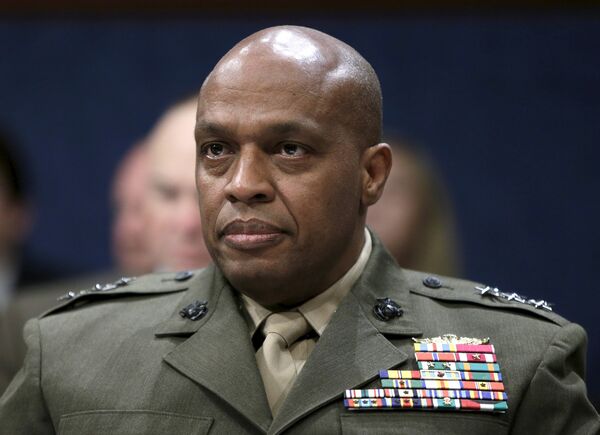Through almost 16 years and three presidents, US-led troops have been mired in war, guerrilla factional disputes and "state building."
At the annual assessment of threats to US national security, top intelligence officers offered a pessimistic forecast for the future of the US' longest war.
Director of National Intelligence Dan Coats told the US Senate Intelligence Committee that US engagement in Afghanistan is heading to a scenario worse still than stalemate.
"Afghan security forces' performance will probably worsen due to a combination of Taliban operations, combat casualties, desertions, poor logistics support, weak leadership," Mr. Coats said.
"The political and security situation in Afghanistan will also almost certainly deteriorate through 2018, even with a modest increase in the military assistance by the US and its partners.
"Afghanistan will struggle to curb its dependence on external support until it contains the insurgency or reaches a peace agreement with the Taliban," Coats said at a hearing of the Senate Intelligence Committee.
It comes as unease among the US' allies is simmering over whether they should continue to commit more troops to the protracted war.
Their key European backer, Germany, has signaled reservations about expanding their role with more troops.
Meanwhile, although Australia has indicated that it is "open" to approving a NATO request for more troops, Prime Minister Malcolm Turnbull did not give a clear indication of his intentions at his recent visit to Afghanistan on April 24, 2017.
It has been an honour to meet the servicemen and women in the Middle East, to thank the Anzacs of today for their service. pic.twitter.com/MrkGH1f6AZ
— Malcolm Turnbull (@TurnbullMalcolm) April 24, 2017
"We are certainly open to increasing our work there, but we've obviously got to look at the commitments of the Australian Defense Force in other parts of the region and indeed in other parts of the world," Turnbull told reporters on Friday May 12.
Australia currently has almost 300 troops stationed in Afghanistan.
So, what next for President Trump's administration and its NATO allies?
In February 2017, US General John Nicholson, the commander of foreign troops in Afghanistan, asked US legislators for a significant increase of 3,000 more US and NATO troops to fill a shortfall in training and advising roles.
The US currently has about 8,400 troops in Afghanistan.
And the US has previously, on multiple occasions, expressed its commitment to supporting local Afghan forces in their fight against extremism — through training and military support.

However, some US military leaders are calling for bolder risks to be taken.
On Thursday May 11, Defense Intelligence Agency Director Lt. Gen. Vincent Stewart — the head of the Pentagon's military intelligence agency — testified before the Senate Intelligence Committee.
He called on the US to "do something very different" in Afghanistan, advising placing US military advisers closer to the front lines of battle.
If such changes are not made, Stewart said, "the situation will continue to deteriorate and we'll lose all the gains we've invested in over the last several years."
President Donald Trump has thus far not given a clear assessment of his foreign policy aims for Afghanistan.
Since the US invasion in 2001, more than 2,200 US troops have lost their lives.
If Director of National Intelligence Dan Coats' grim forecast of US involvement in Afghanistan comes true, their loss will likely be even harder to justify.





